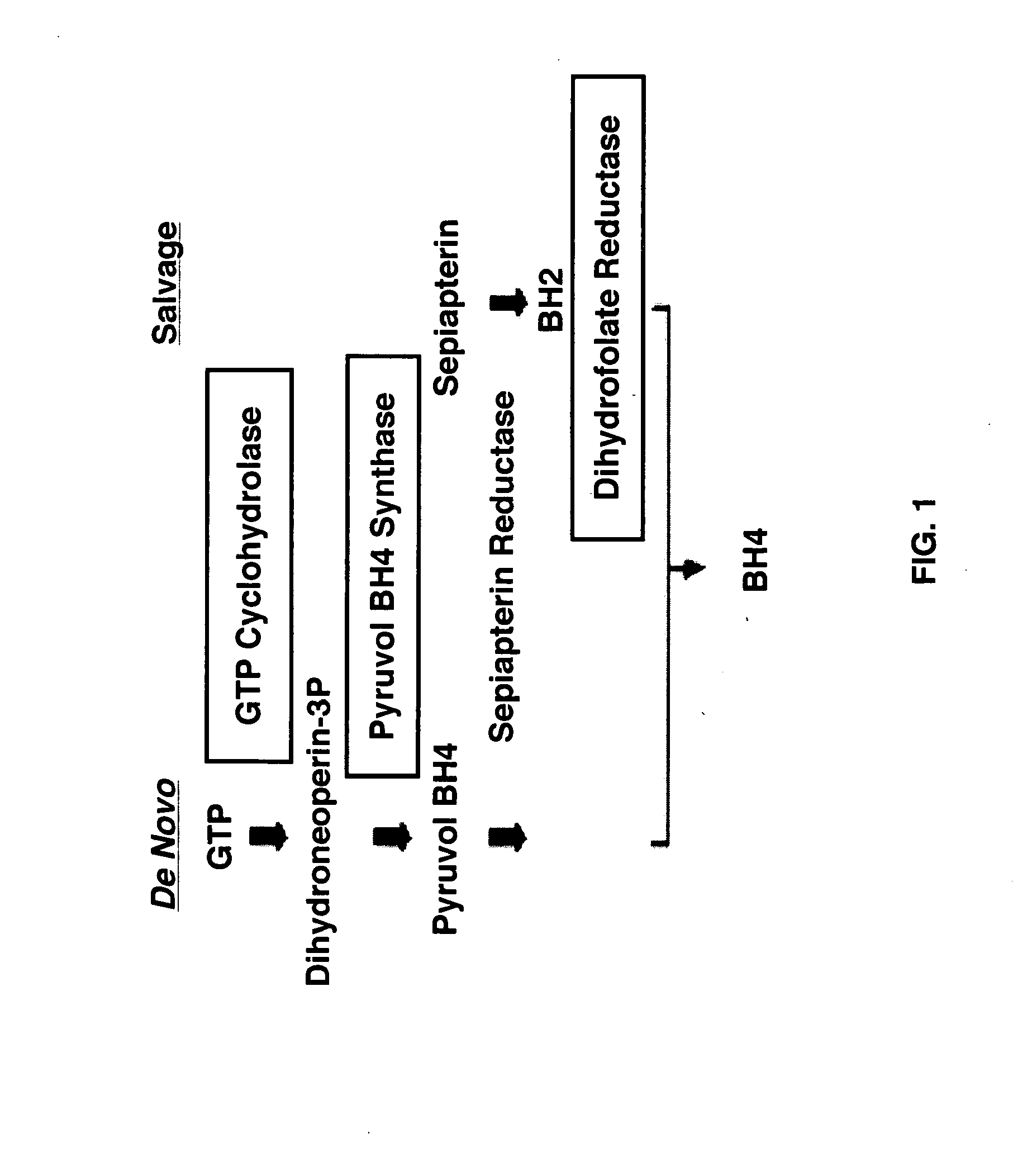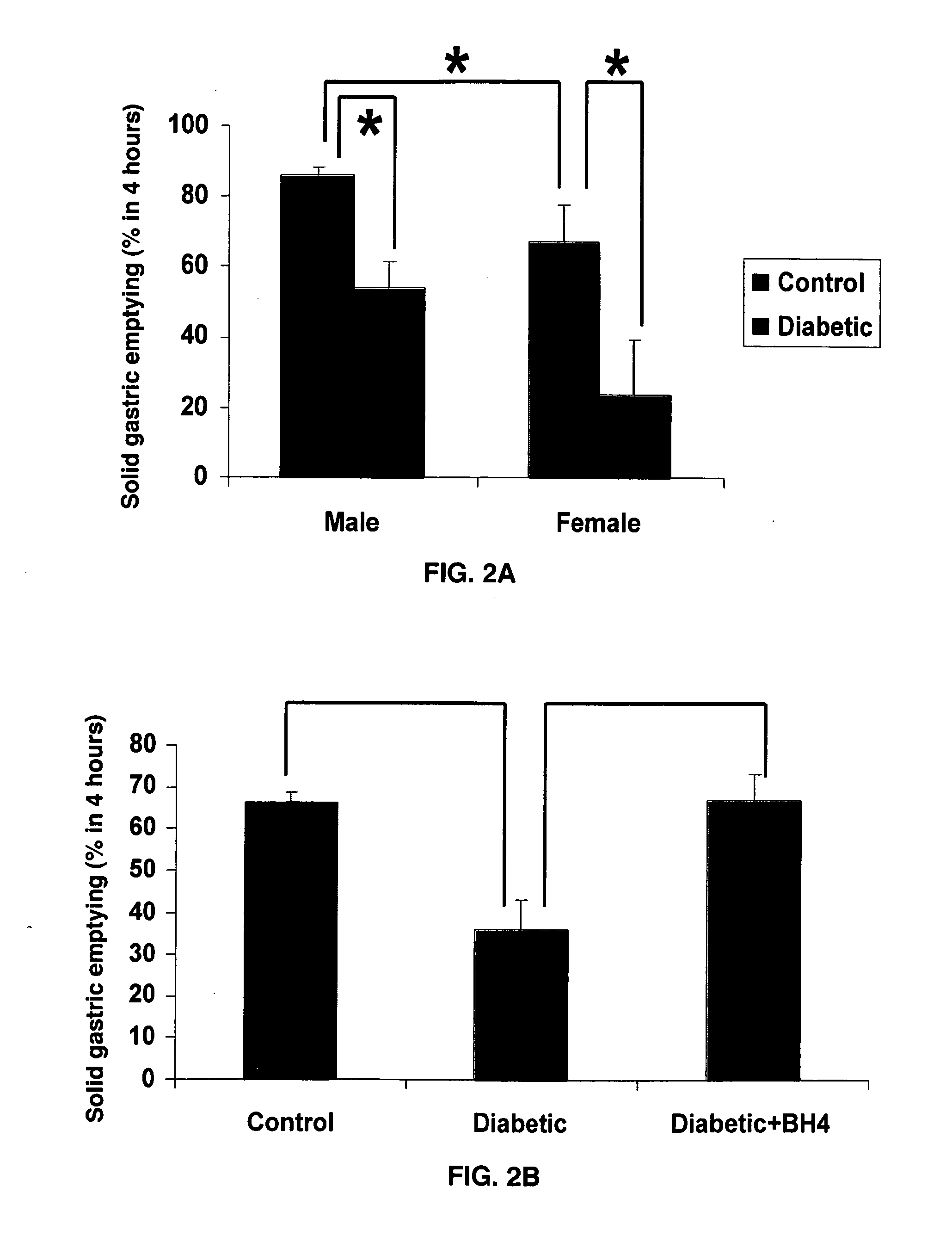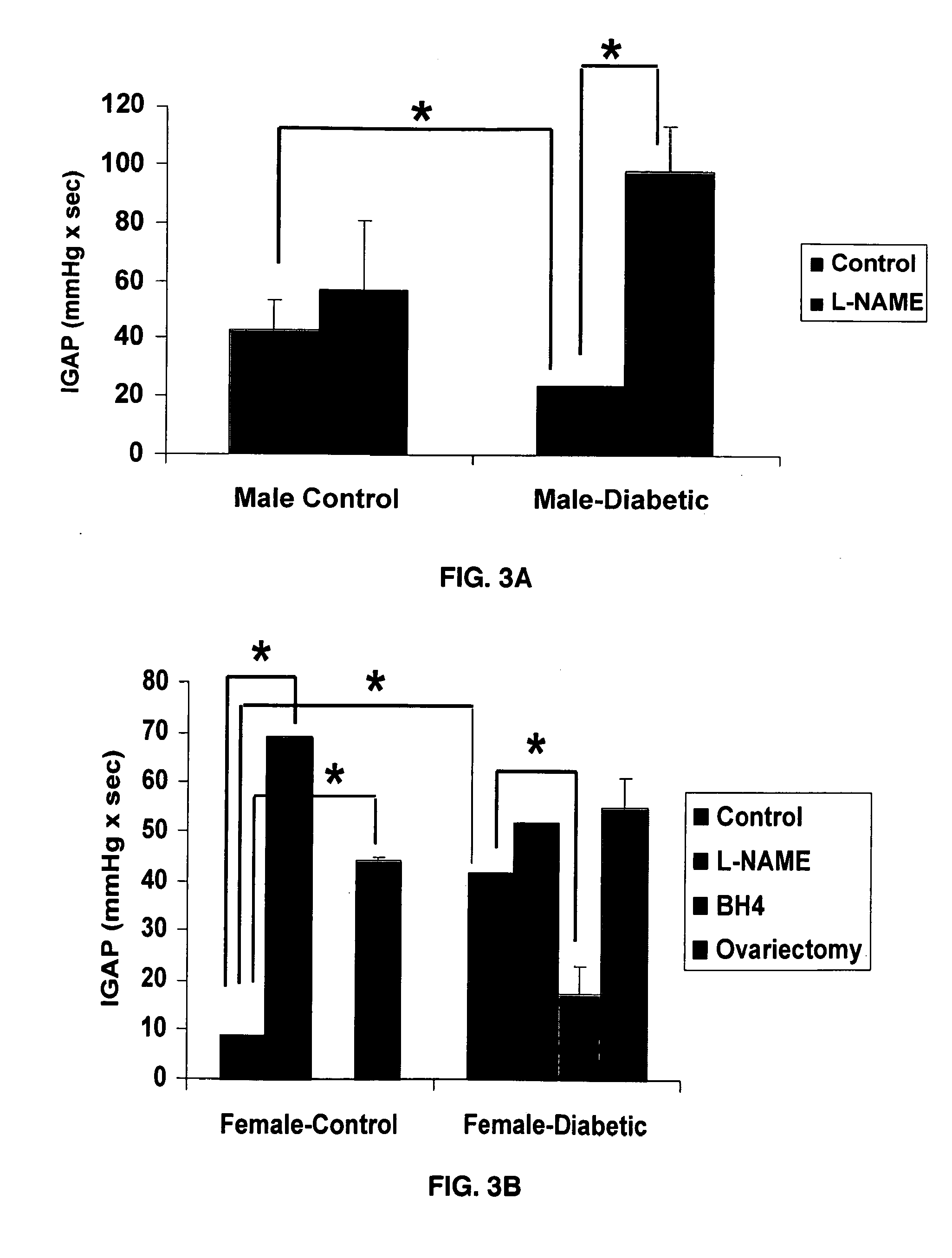Treatment for gastroparesis using sepiapterin
a technology of sepiapterin and gastroparesis, applied in the field of drugs and diseases, can solve the problems of ineffective treatment of gastroparesis, empirical and only partially effective treatment, if at all, and achieve the effect of restoring gut motility in an individual, increasing expression and/or activity, and restoring gut motility in the individual
- Summary
- Abstract
- Description
- Claims
- Application Information
AI Technical Summary
Benefits of technology
Problems solved by technology
Method used
Image
Examples
example 1
Methods and Materials
Experimental Rats and Induction of Diabetes
[0061]Adult female Sprague Dawley rats (9 week old) were procured from Harlan (Houston, Tex.) and Harlan Sprague Dawley Inc. (Indianapolis, Ind.) and maintained in the institutional animal care facility under controlled temperature, humidity and light-dark cycle (12:12-h), with free access to rodent chow and water. All experiments in this study were approved by the Institutional Animal Care and Use Committees at the University of Texas Medical Branch, Galveston, Tex. and Meharry Medical College, Nashville, Tenn., in accordance with the recommendations of National Institutes of Health, Guide for the Care and Use of Laboratory Animals.
[0062]Diabetes was induced in overnight fasted animals by a single intraperitoneal injection of streptozotocin (STZ, 55 mg kg−1) (Sigma Chemical, St. Louis, Mo.) prepared in 9 mmol citrate buffer, pH 4.0. Control animals were injected with the vehicle (9 mmol citrate buffer, pH 4.0) (94). Bl...
example 2
Chronic Diabetes Delayed Solid Gastric Emptying in Rats
[0072]The present invention investigated whether solid gastric emptying (GE) is slower in male and female rats after diabetes induction. Additionally, whether dietary tetrahydrobiopterin attenuated the delayed gastric emptying in female diabetic rats was also examined. FIG. 1 depicts the biosynthesis of tetrahydroobiopterin. Diabetes induction significantly delayed gastric emptying in both male and female rats (FIG. 2A). However, females showed severe gastroparesis compared to males after diabetes induction. Interestingly, tetrahydrobiopterin supplementation completely restored gastric emptying in female diabetic rats (FIG. 2B).
example 3
Chronic Diabetes Impairs Intragastric Antrum Pressure and Sensitivity to L-NAME in Female Rats
[0073]Intragastric pressure (IGP) was measured using ambulatory telemetric device. The technique used herein is similar to that of the ambulatory manometric method used in humans to measure contractions of gastric antrum. A previous study had reported a decrease in antral contractility in women compared to age matched men by using dynamic antral scintigraphy and antriduodenal manometry. The intragastric pressure was observed herein to be lower in female compared to male rats (FIGS. 3A,3B). L-NAME treatment significantly elevated IGAP in females and this was decreased in male rats. No change in intragastric pressure was noticed with L-NAME treatment in female rats. However, males showed an increase in intragastric pressure after L-NAME treatment (FIGS. 3A-3B). Additionally, dietary tetrahydrobiopterin completely restored the elevated intragastric pressure in female diabetic rats. These obser...
PUM
 Login to View More
Login to View More Abstract
Description
Claims
Application Information
 Login to View More
Login to View More - R&D
- Intellectual Property
- Life Sciences
- Materials
- Tech Scout
- Unparalleled Data Quality
- Higher Quality Content
- 60% Fewer Hallucinations
Browse by: Latest US Patents, China's latest patents, Technical Efficacy Thesaurus, Application Domain, Technology Topic, Popular Technical Reports.
© 2025 PatSnap. All rights reserved.Legal|Privacy policy|Modern Slavery Act Transparency Statement|Sitemap|About US| Contact US: help@patsnap.com



